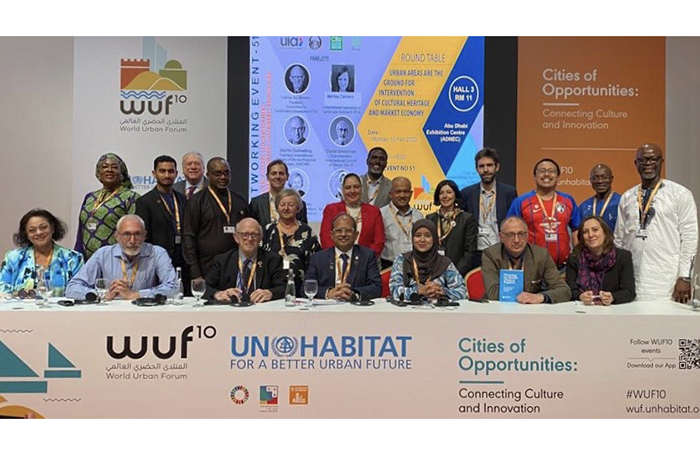Geoff Rich RIBA, AABC, and Managing Partner at Feilden Clegg Bradley Studios, writes about his experiences at WUF 10.
The tenth meeting of the World Urban Forum took place at the National Exhibition Centre in Abu Dhabi between 8 and 13 February 2020.
This event is a major international conference, convened by the United Nations through its UN-Habitat programme. This year, under the leadership of its amazingly capable and energetic executive director, Maimunah Mohd Sharif, it attracted a truly global audience to plan for meeting the challenge of sustainable development in the face of a climate crisis.
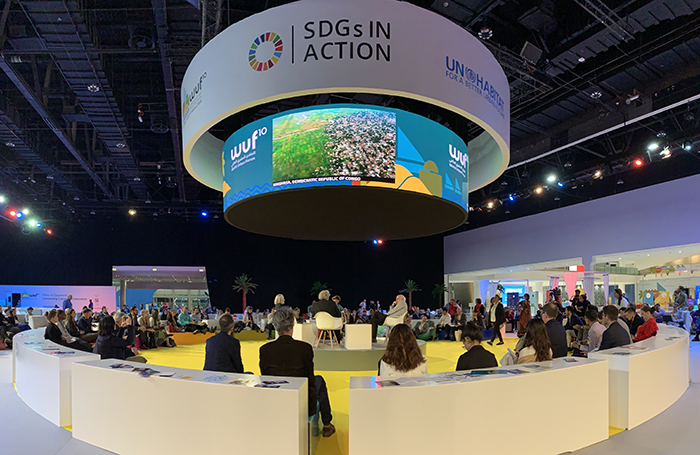
The stats of the WUF conference are mind-boggling – this year’s event attracted more than 13,000 attendees, from more than 160 different countries, with 450 speakers and over 500 events.
The central theme of the conference was providing support to all UN member nations to achieve the UN Sustainable Development Goals (SDGs), with a particular focus on 'SDG 11: Cities and Sustainable Communities', bringing the issues of climate change, cities, and cultural heritage into focus and debate.
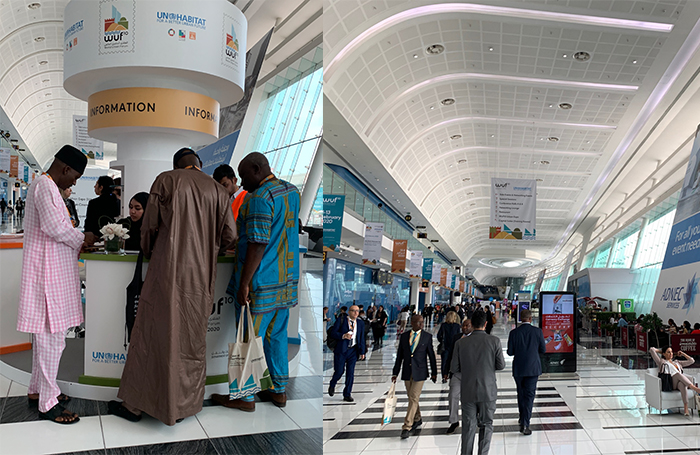
Of course, I had obvious concerns travelling to attend the conference due to the carbon cost of travel, but I went because I was invited to speak at several events. I felt it would be a good opportunity to understand and share skills and knowledge in support of international sustainable development, and to assess how we may contribute to future initiatives - ideally, without unnecessary future travel.
The collaborations began immediately on arrival in the queue to clear passport control at Abu Dhabi airport, and extended to the conference venue itself. The place was packed with colourful national costumes and a real buzz of conversation in all different languages across many stages and platforms.
Sessions included every imaginable theme, from heritage-led regeneration, urban violence, design for children and funding major urbanisations.
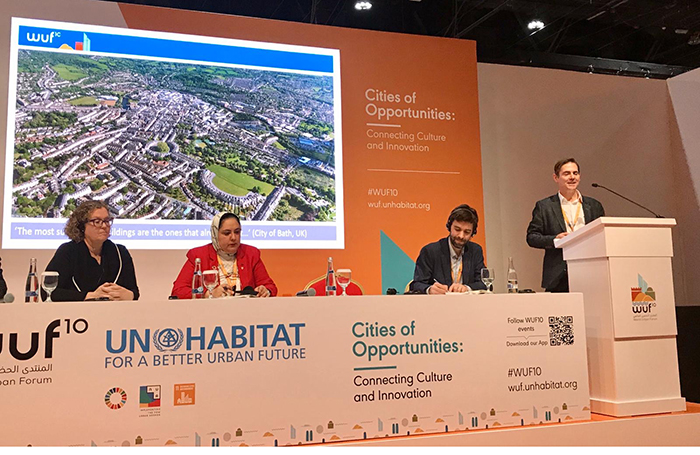
The two key themes emerging at WUF were the rapid urbanisation of global cities, and how existing cultural heritage may be sustained as part of necessary development in the next 10+ years in the face of climate emergency.
In this respect, the role of the RIBA and its members is of critical importance, working across many key countries and cities. The RIBA also connects to economic partnerships such as the Commonwealth, linking the UK’s professional skills and expertise to 30% of the world’s population, and its network of education institutions, all working with English as a common language.
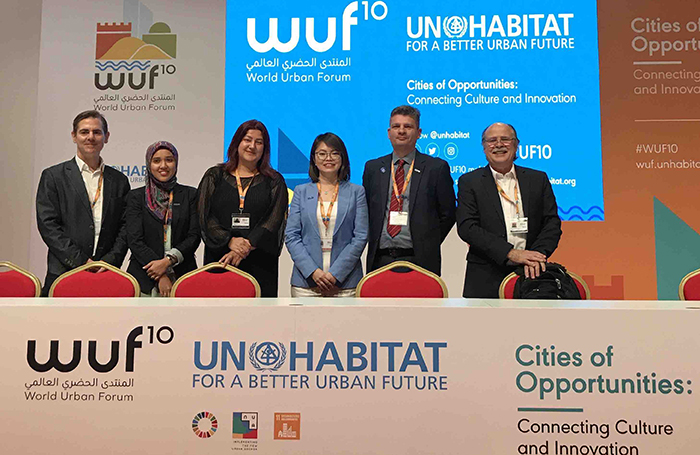
The scale of the international challenge is of course immense, however the breadth and depth of the emerging responses is uplifting, and debates highlighted the capability of organisations like the Commonwealth Architects Association, Princes Foundation, and Climate Heritage Network, as well as the international professional bodies such as RIBA, UIA and RTPI.
Our work in sustainable development is the most critical issue we face. At WUF, it was clear that the world ‘gets it’, and is urgently seeking informed advisors and expertise to plan for the scale of the challenge. Furthermore, the UK’s hosting of COP26 in 2020 will keep it on the map and at the forefront of the debate. This an important year – at the start of a critical decade – for us all.
